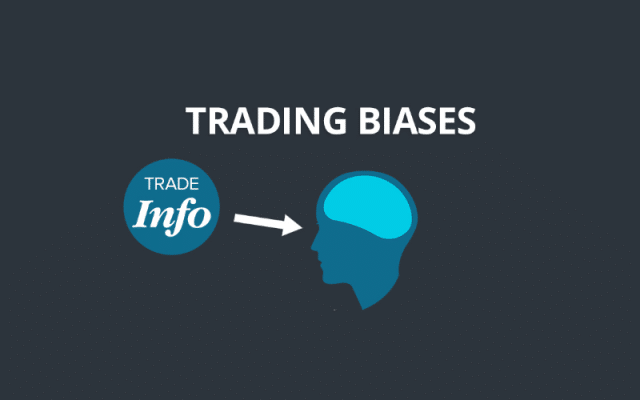One of the biggest reasons for inefficiency while trading in financial markets is irrational human behavior and its effects. Many people think that the market is populated mostly by rational entities trying to maximize their wealth. But some further examination finds that this is not at all true, especially when the forex market is concerned.
Why Do Forex Traders/Investor Act Irrationally?
Investors and traders in the forex market generally pivot from highlighting the return on capital to worrying about the return of capital. Temporary periods of sane equilibrium punctuate this oscillation between fear and greed. As a result, players in the market can act in irrational and herd-like ways, causing price distortions, overshooting, and dislocations in the market.
The irrational act of forex investors can be explained in many ways. The main contributor to irrational trader behavior is bias. You need to realize how bias affects the market and your own trading practices so you can take any one of the following actions.
- Recognizing when you are acting irrationally and stopping yourself from doing so
- Seeing someone else acting irrationally and capitalizing on that opportunity.
Types of Bias
Cognitive Bias
Cognitive bias can be defined as an error in cognition, arising from a person’s line of reasoning while making a decision because of their personal beliefs. In the context of market and trader behavior, the following cognitive biases come into play:
- Overconfidence
- Extrapolation
- Confirmation
- Asymmetric loss aversion
- Anchoring
- Greed and fear
- Round number
- Herding
- Favorite/longshot
Overconfidence Bias
The multitude of surveys conducted in the investing and trading market concluded that traders have a “better than average” opinion about themselves while trading. Because of overconfidence bias, traders can be blind to their own weaknesses, overestimating their own edge. If you are overconfident, it can lead you to commit foolish mistakes while trading such as improper position sizing, confirmation bias, and over-trading.
Confirmation Bias
Confirmation Bias can lead to distorting and impairing your decision making at crucial moments. In the context of trading and investing, we can see confirmation bias when economic data is released. Economic data can consist of a headline number with additional details. For instance, the monthly nonfarm payrolls release is made up of a headline number (net change in nonfarm payrolls) and other details such as hours worked, unemployment rate, and others. Traders often go into the release with the hope of a strong number. The problem occurs when the headline number comes out weak. If you go into the investment by just considering the headline number, it’s a classic case of confirmation bias.
Another way how confirmation bias works are when traders go out searching for information to support a weak starting hypothesis. For instance, you might be bullish on AUD but do not have a good thesis. Instead of looking at other evidence, you instead keep scanning through charts, keep changing time horizons, rescaling overlays and draw trendlines to support your view. This is a classic case of confirmation bias.
The only possible remedy for confirmation bias for a trader is to get flat. Only when a trader is totally flat is when they can properly process incoming information with no bias. No trader should think that he/she is exempt from confirmation bias and should always look to go flat.
Recency Bias
Recency bias is also known as extrapolation bias. Traders often overemphasize recent price action and the current theme while failing to see new themes around the corner. Along with traders, forecasters are guilty of this as well. Recency bias is the main reason behind a lot of the bad behavior of traders we see, explaining why some individual investors and traders constantly underperform in the market. When the overall market or any individual stock price is up, traders and investors buy on the belief that the rally will continue. Similarly, investors sell when stocks are selling off, on the assumption that the moves with continue.
Gambler’s Fallacy is a phenomenon which is considered the inverse of extrapolation bias, but it is less common in the forex market. The only way to remedy recency bias is to have an open mind. You should think independently and question whether the continuation of the current trend and the economic narrative behind it makes any sense. Do not easily get caught up in any particular theme for too long, especially when the price action supports it.
Asymmetric Loss Aversion
There is overwhelming evidence in the form of research that suggests that human beings feel more pain when they lose in the market, compared to when they win in a ratio of roughly 2:1. Thus, we go out of our way to avoid losses whenever possible. Human beings also have the tendency to take more risks for avoiding a loss compared to pursuing gains. In the context of forex trading, loss aversion can lead to various behavioral issues. For instance, traders find it hard to exit losing positions. This is because once they exit the position, the loss becomes crystallized and irreversible. Rather they should hold onto or double down on a position which can lead to making money.
Most successful traders take more losses in smaller quantities when compared to taking larger gains. As a trader, you need to turn off this instinctive loss aversion and embrace the idea of taking frequent but small losses.
Conclusion
The above are just some of the most common types of bias that exist in the Forex market. Human beings individually or even in groups can sometimes act irrationally. Thus, you always have to consider that the market consists of fallible human beings who act in irrational ways using imperfect information.
One of the most common solutions to avoid all sorts of biases while trading is sticking to a trading plan and being disciplined. It’s very tough not to get affected by a behavioral bias of some sort but always look to take steps to minimize their effect on your trading.




